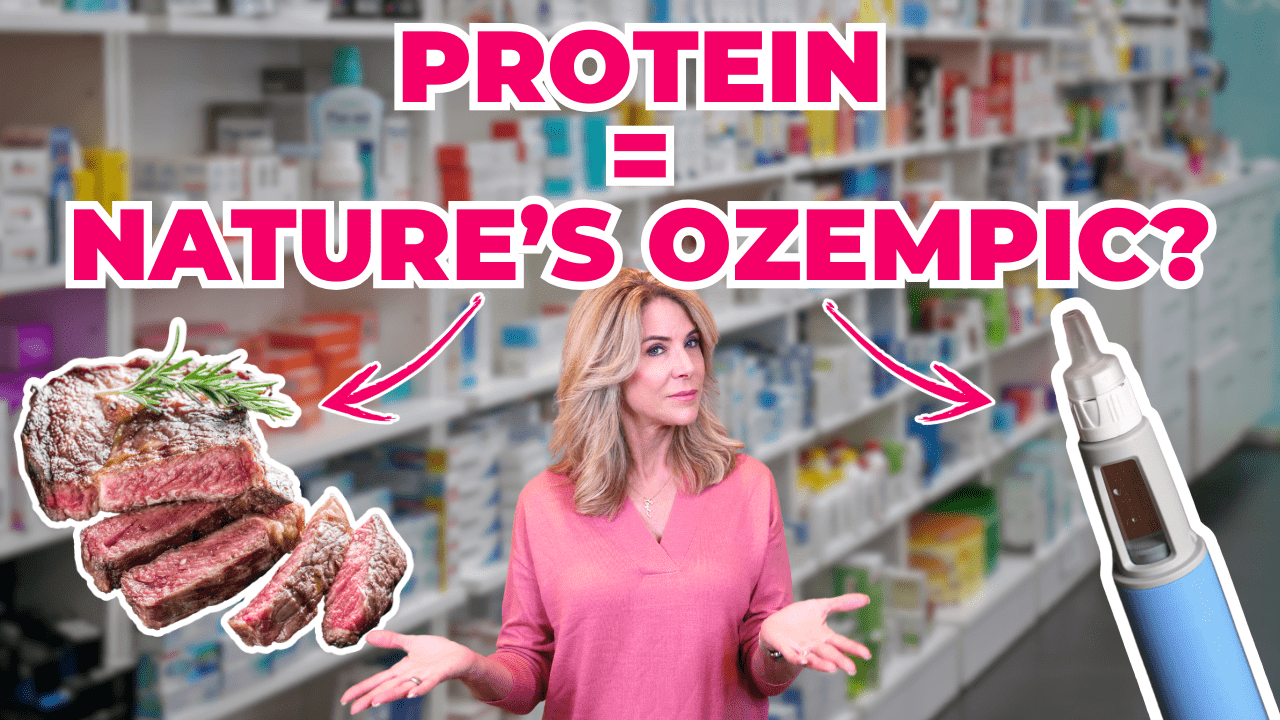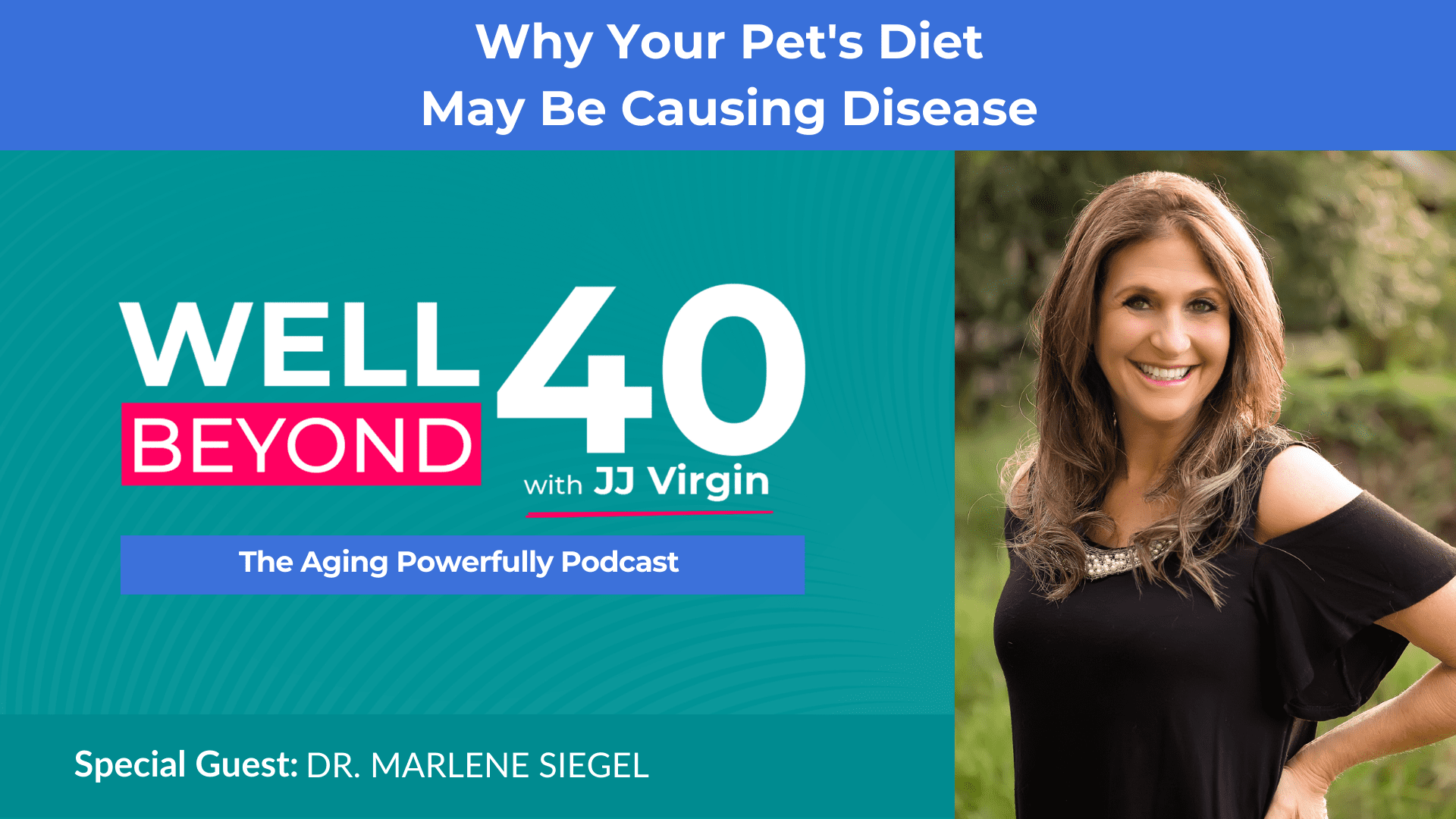Using An Elimination Diet + Testing to Determine the Foods that Hurt You
In this episode of Ask the Health Expert, JJ answers Maddie’s Facebook question, “What is the most accurate test for food allergies?” You’ll learn what separates a true food allergy from food intolerance, JJ’s favorite food sensitivity test, what testing ultimately reveals, what you should do before you test, signs and symptoms of food intolerance, the top foods that people respond to (which led JJ to write The Virgin Diet), and what doesn’t always show up on testing that can contribute to gut permeability. Plus, JJ reveals what makes your gut leaky (it’s not just food!), the right nutrients to help heal your gut, how long you should wait before you rechallenge a particular food, and the limitations of testing. If you’re curious about food intolerance and how testing and/ or elimination diets can help you, you’ll want to tune into this short, informative episode!
Mentioned in this episode:
Order an Adult Food Allergy Profile IgE
Order an Advanced Food Sensitivity IgG
Order a Premium Food Sensitivity IgG
Learn how to effectively manage stress levels
Read The Virgin Diet to learn more about food intolerance
Learn more about leaky gut and how to heal your gut
Click here for more information and offers from our sponsors
ATHE_Transcript_Ep 483_QA What Is the Most Accurate Test for Food Allergies?
JJ Virgin: [00:00:00] This is JJ Virgin four time, New York Times bestselling author, celebrity nutrition expert, and fitness hall of famer. I’ve been on a lifelong quest for answers to the toughest health questions. And now I’m sharing what I found with you. Welcome to ask the Health expert
Maddie from Facebook asks, what is the most accurate test for food allergies? Ah, This seems like an easy question, but it’s actually a little more detailed than you’d realize. I will be right back with the answer.
Okay, so I still remember when I was writing the Virgin Diet and we were sitting around [00:01:00] talking about it, the editor, my agent, and they were trying to decide what to call it because it’s not the book, but food. intolerances or food sensitivities, cuz I was like, It’s not an allergy. It’s not an allergy. I’m gonna guess, Maddie, that you’re actually not asking about true food allergies.
You’re asking about testing for either an intolerance or a sensitivity. A true food allergy is an immediate reaction, and that’s where they’ll do the scratch test. And you’ve, you’ve heard about that, where they’ll scratch you, like prick you with these different things and see if you react. It’s where, you know, someone on the plane has the peanut allergy and they can’t open the peanuts up because they’ll go into anaphylactic shock.
That’s a very different thing than a food, a delayed food sensitivity. And so I am guessing that that is what you’re talking about. Now, when I wrote the Virgin diet and you know, I, I kept saying it’s not a food allergy. , it’s an intolerance or a sensitivity. Now there is [00:02:00] a piece with food intolerance, gluten intolerance, there’s a genetic component there.
So sometimes intolerances could be like lactose intolerance gluten intolerance could be genetic issues, but I still love the, in the umbrella term of an intolerance. And I look at food intolerance and I look at it in a couple different ways and I’ll tell you how you can test and a couple different things you can do to test.
But when I look at the intolerance, I’m thinking, you know, there’s a variety of ways I could become intolerant to a food. The most classic thing that a food sensitivity test looks at, and my favorite type of food sensitivity test is one called an IGG-4. Test IgM is immediate and IGG is gonna look at delay, but the length of delay is the IgG four is gonna give you more a a longer period, so it’ll show has this been going on for a while.
Ultimately, though, remember, you’re only gonna show up for foods you’re actually eating. So if you never eat the thing and it’s been six months, it’s not gonna show. [00:03:00] Right, but ultimately this test is really a test of your gut permeability. You see food sensitivities happen because your gut, your small intestines become more permeable.
It’s a semipermeable membrane than it should be. And food, especially food that you haven’t digested well. So maybe if you’ve been under stress or you’re 35 or older, you have lower stomach acid, you don’t have great chewing, hygiene, and food goes into your small intestines, a little more permeable than it should be.
Things pass out to circuit into your bloodstream where they don’t belong in your body goes, What the heck is that? And it sends out invaders. It sends out cuz it sees it as a foreign invader. Not a helpful food item and not helpful nutrients, and it sends out a little antibody after it. So the protein from the food, the antigen, the antibody grabs a hold of it and says like a and grab and creates an immune complex.
Now, if there’s just a [00:04:00] couple of these, your body has macrophages just like PacMan that eat it up and get rid of it. The problem. Our gut becomes more permeable. These things get out and it’s generally the biggest culprits are those things we tend to eat every single day. And then these immune complexes build up and they create symptoms like gas and bloating and headaches and joint pain and fatigue and rashes and autoimmune diseases.
So, What I like to do before I do an IgG food sensitivity test, personally, I feel that the best thing that we could do is do an elimination diet. That is what the Virgin Diet was written about. I was looking at a lot of these food sensitivity tests, and what I noticed was the top foods that were people responding to were number one, eggs and dairy.
Number two, corn, soy, peanuts. Now gluten is another type of test. , you can see Wheaton in a food sensitivity test, but not gluten. So I was looking at that differently. And then sugar and artificial sweeteners [00:05:00] were also not there. But the reason I pulled out gluten and sugar and artificial sweeteners. Is because they can contribute to gut permeability.
In fact, gluten can cause release of something called zonulin. And zonulin makes your gut more permeable. Fructose makes your gut more permeable. And of course we know artificial sweeteners and sugar can perturb your gut microbiome cause gut dysbiosis. So those things were just creating more problems. So what I highly recommend is the first thing that you do is do the virgin.
Pull out those my most likely foods, it was really a revamp of, of the elimination diet that’s been around for decades. But what I recognized was what we were pulling out of the elimination diet for so many of us, I was like going, these aren’t the foods that I’m seeing showing up. So let’s pull out the most likely suspects.
Let’s take out the things that make your gut more leaky. So those, a lot of, a lot of things that do that. Pain medications you. Foods that are ultra processed, I call ’em dirty. Processed foods. Inflammatory foods, [00:06:00] and then let’s heal your gut. You know, big culprit here is stress. Stress makes your gut more permeable, so let’s heal your gut by pulling out the hurting foods, swapping them for healing foods, and getting in some stress management right.
Doing some nutrients that can help heal the gut. I have a product called Healthy Gut Support that can help there and using digestive enzymes. Then we go back and we check in with each of those foods after three weeks or longer. My preference is more like four to six weeks. You see how each food works for you?
You connect the dots, and at that point, if you’re still noticing, Hey, I got joint pain, headaches, brain fog, you know, weight loss resistance. Then go do the other test. But we wanna start to heal the gut first. And I would actually argue, like, I’d like to see you three months in where you’ve really done the gut healing before you do the test.
Cuz if you do a test right away and you have tons of responses, you’re gonna be, I have nothing to eat. But [00:07:00] really the reality is it’s not about that. It’s about you need to heal your leaky gut and we need to pull out the most likely suspects. So where I like to use this food sensitivity test. An IGG-4 test is after about, you know, at least six weeks to 12 weeks after you’ve done the Virgin Diet.
You’ve pulled those foods out, you’ve done some gut healing. If you need more gut healing based on your score on the food intolerance test, you go longer. And at that point, if you’re not feeling absolutely fabulous, spectacular, this is a great time then to go and use. That test, the food sensitivity test, and again, the IGG-4 is my favorite.
I feel it is the most accurate. And then of course, if you get that test and you see all sorts of positives, you go, Holy smokes, I’ve gotta really figure out what’s going on with my gut. Right? That’s what it’s really measuring. Your gut integrity. Okay, Hope that was helpful to you. I know you thought this was gonna be an easy answer.
Sometimes there just are no easy answers. . I’ll [00:08:00] see you next time.
This is JJ with Ask the Health Expert. I answer your questions weekly. Plus I interview the top experts. And wellness, so make sure you never miss a show by going to subscribetojj.com. Yep, it’s that easy. I’ll see you next time.

 Subscribe to our show
Subscribe to our show 




